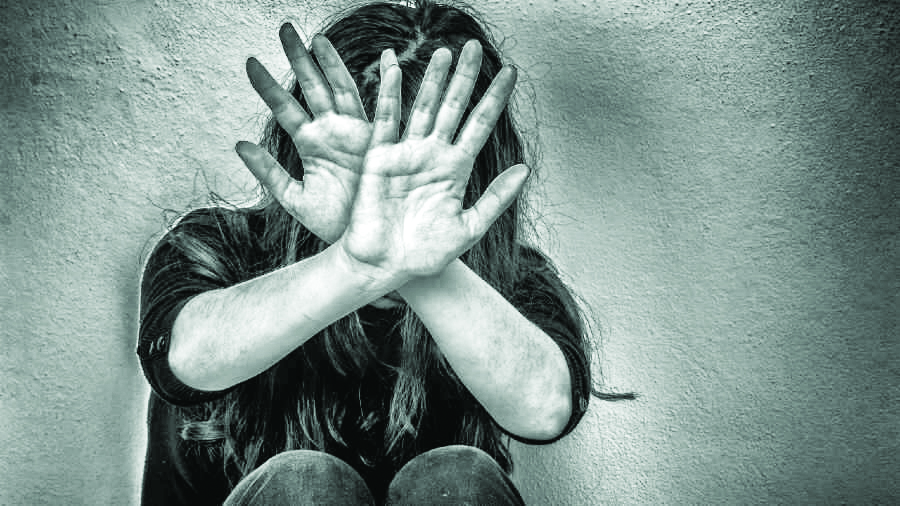Ordeal beyond flames
Apart from subjecting an individual to harrowing physical violence, incidents of rape also leave long-lasting scars on the victim’s psyche — which can be eased only through busting myths and opening up for personal and professional help

Trigger warning: This article contains information about the psychological impact of abuse, rape, and trauma. Please refrain from reading this content if it bothers you.
Rape is a traumatic and heinous crime that can leave lasting scars on its survivors and their families. It is more than a physical violation because the mental health impact of rape can be devastating, often leading to long-term psychological and physical consequences. Sexual violence is about power, control, and a violation of a person’s autonomy.
It is important to raise awareness and destigmatise the discussion surrounding mental health after rape to create a safer space for these warriors.
Unfold the newspaper, and the pages scream with chilling reports of this crime. A 2015 study by the National Crime Records Bureau (NCRB) found that an average of 93 rapes were reported to the police each day in India. Recently, two Kuki women were paraded naked by a mob on May 4 in the Thoubal district of Manipur, and subsequently gang-raped. India reported 33,977 rape cases in 2020, a 2.8 per cent decrease from 2019. The number of unreported cases is likely much higher.
Psychological aftermaths of rape
v PTSD: The survivors may experience intrusive thoughts, nightmares, flashbacks, and intense emotional distress, impairing their daily functioning. There is usually heightened anxiety, hypervigilance, and an overwhelming fear of similar situations, leading to avoidance and a tendency to shut oneself out from the world.
v Depression and suicide: Suicide attempts are common in the aftermath when survivors face a feeling of sadness, hopelessness, and severe disturbed sleep and appetite. Uncountable people are unable to share their pain with anyone and find self-harm a last resort.
v Dissociation: Another experience rape victims go through is dissociation as a coping mechanism. This is the mind’s mechanism to detach from the intense emotional and physical pain associated with the assault, which can present in the form of depersonalisation, derealisation, dissociative amnesia, and even fugue.
v Intimacy and relationships: It is common to find it hard to trust a partner and commit to the institution of marriage. Some others may immediately want to absorb their pain by committing to another person and never processing the pain.
v Sexual issues: There can be a profound impact on a survivor’s relationship with their own body and sexuality. Common experiences like sexual dysfunction, loss of libido, dyspareunia, or an aversion to intimacy are commonly noted.
v Guilt: Intense self-blame and guilt are processed for being in the wrong place at the wrong time; not being able to avert the situation can exacerbate their mental distress and hinder the healing process.
v Substance abuse: Some survivors turn to substance abuse in order to numb the pain and cope with the overwhelming emotions and memories.
Myths about rape survivors:
Myth 1: Rape only happens to women.
Fact: Sexual violence is not limited to any specific gender. While the number of reported rapes is higher among women, rape can happen to individuals of any gender, including men, transgender individuals, and non-binary individuals.
Myth 2: Some survivors ‘ask for it’ by their behaviour, clothing, and actions.
Fact: No one ever asks or deserves to be sexually assaulted, regardless of their behaviour or attire. A survivor is never to be blamed; the perpetrators are solely responsible for their actions.
Myth 3: If a survivor doesn’t report the assault immediately, they must be lying or it must not have happened.
Fact: The most common reaction to such an event is fear, shame, and not being fully able to comprehend it. Even families encourage the survivor to keep it to themselves, while the trauma response can make it difficult to come forward immediately.
What to do if you have been through a traumatic experience yourself?
Find safety first. Your first action needs to be to ensure you are safe and away from danger. Seek a safe environment and contact the police and emergency services.
v Support: Talk to someone you trust. This can be cathartic and comforting.
v Professional help: Seeking help from gynaecologists, psychiatrists, and mental health experts is the beginning of the journey to working through the trauma.
v Avoid: Triggers, places, or highly challenging situations in the beginning. Also avoid substance abuse or being alone. The triggers can be worked through later in therapy.
v Legal: It is encouraged to seek legal support to understand your rights and explore possible legal actions.
v Support groups: Connecting with others who have experienced similar traumas can provide a sense of validation and support.
v Heal: Give yourself permission, time, and space to heal from this.
v Resource in India: Aks Foundation (8793088814).
Send your questions to



